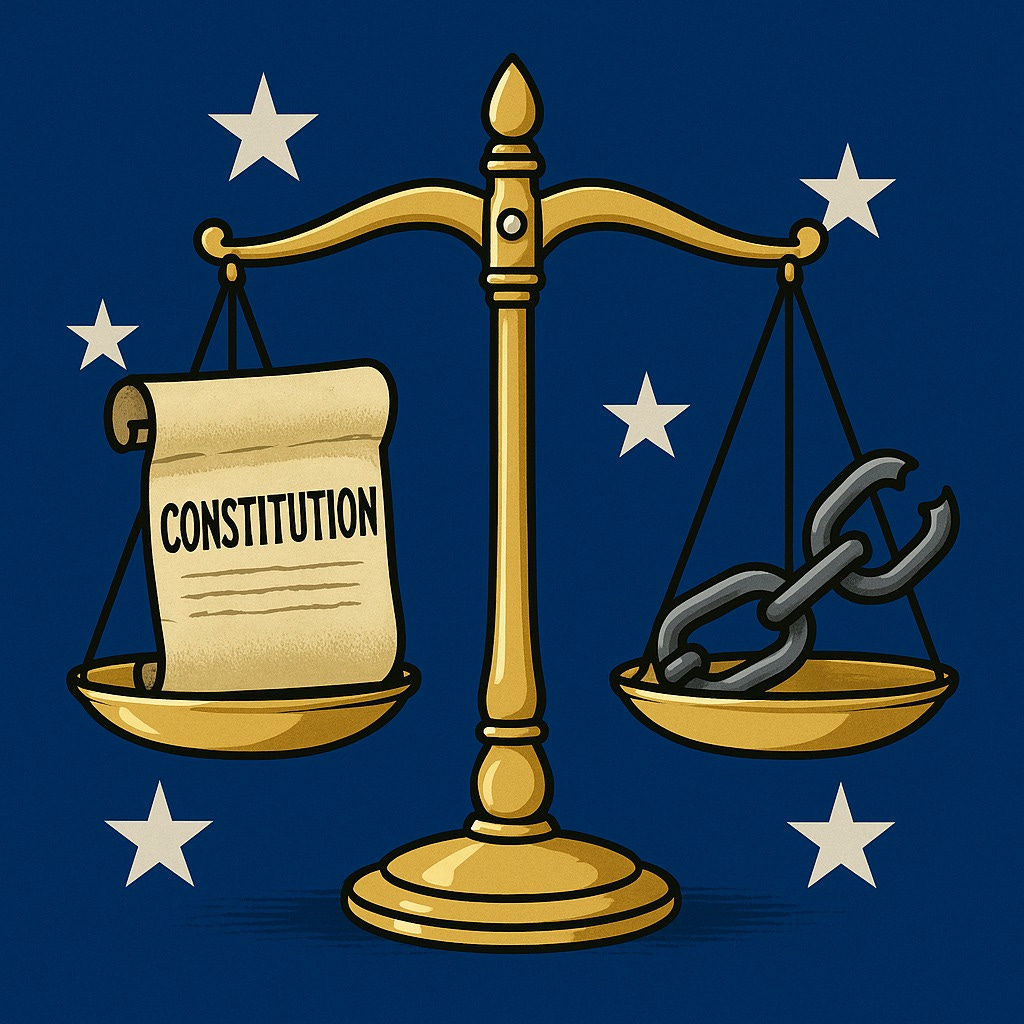✍️ What’s a Foreign Gift Worth? The Constitution Says: Not Our Democracy
A private jet, public duty, and the Constitution
Reports of foreign gifts to Donald Trump while president continue to raise urgent concerns about loyalty, influence, and corruption at the highest levels of power.
Remember that luxury Boeing 747 from Qatar?
It was offered as a gift, supposedly to be used as Air Force One and eventually handed over to the Trump Presidential Library. Legal experts quickly warned it could violate the Constitution’s Emoluments Clause.
Now, in his second term as president, the stakes are even higher.
The U.S. Constitution sets explicit limits to protect against foreign influence, self-dealing, and unethical entanglements:
Article II, Section 1: The president’s compensation cannot be altered during their term—and they may not accept gifts or other payments from the United States or individual states. It ensures the president stays loyal to the people—not influenced by domestic perks or political favoritism.
Article I, Section 6: Members of Congress cannot hold other federal jobs or get government perks that could benefit them financially. It’s supposed to prevent members of Congress from using their power to enrich themselves or gain undue influence.
Article I, Section 9: Federal officials, including the president, may not accept gifts, titles, offices, or other benefits from foreign governments without the consent of Congress. It protects our sovereignty and democracy by blocking foreign interests from buying influence over our public servants.
These constitutional safeguards are not just formalities. They are also vital to ensuring that our leaders remain accountable to the American people—not influenced by foreign powers or personal gain.
These concerns extend across all branches of government. Supreme Court Justice Clarence Thomas, for example, accepted years of undisclosed luxury travel from a political donor. And U.S. Sen. Bob Menendez, a Democrat, was indicted for accepting gifts tied to foreign influence, including gold bars and luxury items. Neither case involved congressional approval—underscoring how these constitutional safeguards are too often ignored.
And in May 2025, the Qatar gift issue erupted again. The Pentagon formally accepted the luxury jet from Qatar—valued at $400 million. Critics warned that retrofitting the plane could cost more than $1 billion, further risking national security and wasting taxpayer dollars.
Members of the House Foreign Affairs Committee and Senate leaders pushed back. Some introduced legislation to block the transfer outright, citing violations of the Constitution’s emoluments provisions and the broader ethical danger it represents.
And for several hours on Aug. 6, 2025, a description of the constitutional clause prohibiting gifts to federal officials vanished without notice from an official congressional website.
The Constitution Annotated site showed broken links for Article I, Sections 9 and 10. A website message later blamed “coding issues.” But the unexplained gap is a chilling warning about how vulnerable public access to constitutional truth can be.
This wasn’t just a technical glitch. It symbolized the erosion of core constitutional limits in plain sight.
While the text was restored, it raised new concerns. The annotation for Article I, Section 9—covering the Foreign Emoluments Clause—is brief and technical. It doesn’t highlight the clause’s broader historical use as a safeguard against foreign corruption, nor does it mention any of the controversies involving recent presidents.
The site does not explain what happened or whether any changes were being made behind the scenes. That lack of transparency, especially in a time of rising authoritarianism, is a concern in itself.
Access to the full meaning and history of our government's ethical protections must never be taken for granted.
The Constitution is clear: Foreign gifts to public officials require congressional approval. Anything less is a betrayal of democratic integrity—and a danger to all of us.
Related Commentaries
The Oval Office Isn’t a Courtroom ➤ On how executive overreach is echoing bills of attainder—punishing without trial—and the broader risks to our constitutional safeguards.
Habeas Corpus: A Cornerstone of Our Liberty ➤It looks at another constitutional safeguard—against unlawful detention—and how information on its constitutional protections briefly disappeared from public view on Aug. 6.
Take Action
Contact your senators and representative. Urge them to uphold the Foreign Emoluments Clause and defend constitutional ethics—regardless of who’s in power.
Support watchdog groups working to enforce ethics laws and constitutional norms: ACLU | Citizens for Responsibility and Ethics in Washington (CREW)
Check out other resources at Plainly, Garbl:
Corruption, Ethics & Accountability in Government
A ranked guide to organizations exposing corruption and fighting for clean government.
Justice Reform & Legal Accountability
A ranked guide to advocacy groups promoting independent, ethical courts.
Legal Resistance for Justice
A ranked guide to legal groups challenging anti-democratic policies and abuses of power.Executive Overreach & Abuse of Power
A ranked guide to organizations resisting authoritarianism and defending democratic norms.


